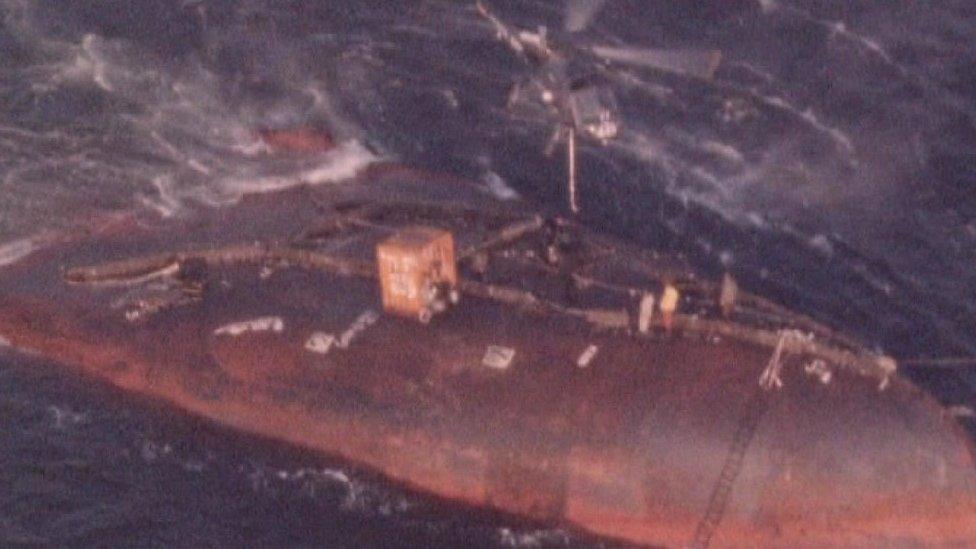Eleni V tanker leak: Oil on Suffolk beach 'not an environmental threat'
- Published
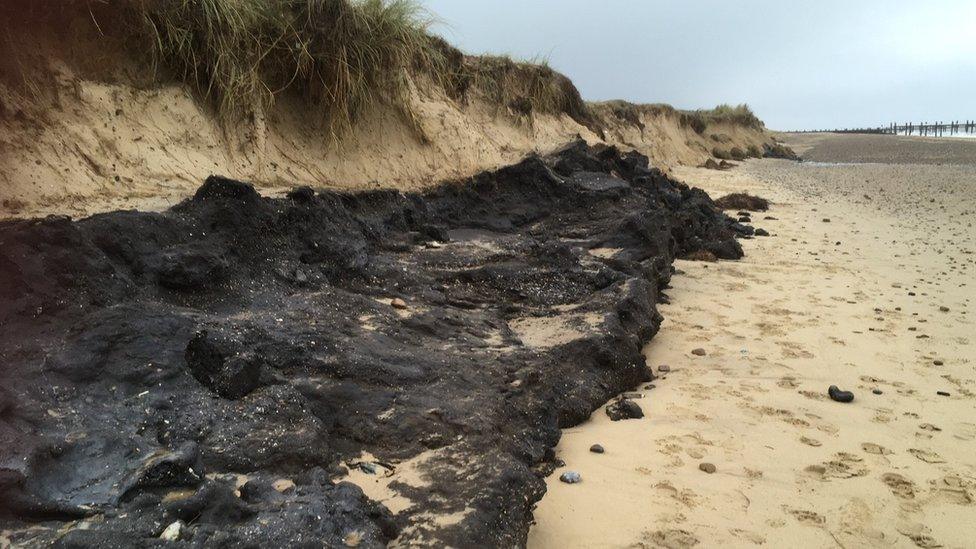
The oil deposits have been exposed by recent high tides along the east coast
Oil that washed up on a beach as a result of a tanker sinking more than 40 years ago has not "posed a threat to the environment," a council said.
East Suffolk Council is investigating the deposits revealed by high tides on Lowestoft North Beach from the Eleni V, which sank in 1978.
The tanker sank off the Norfolk coast after being blown up by the Army, losing more than 5,000 tonnes of fuel.
The council said "continuing erosion may exacerbate the situation".
In a statement, external, the authority said it had been monitoring the situation since 2018.
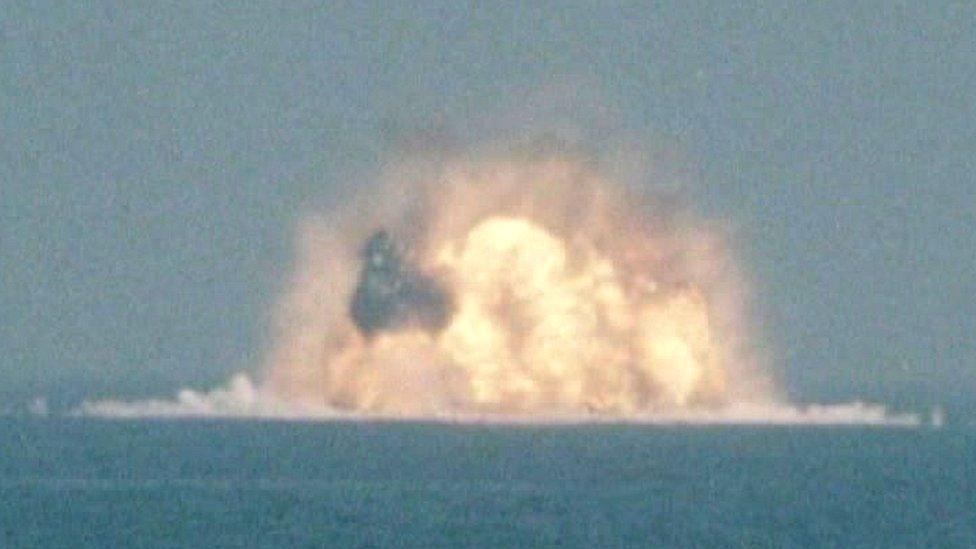
The Eleni V was blown up by the army in June 1978
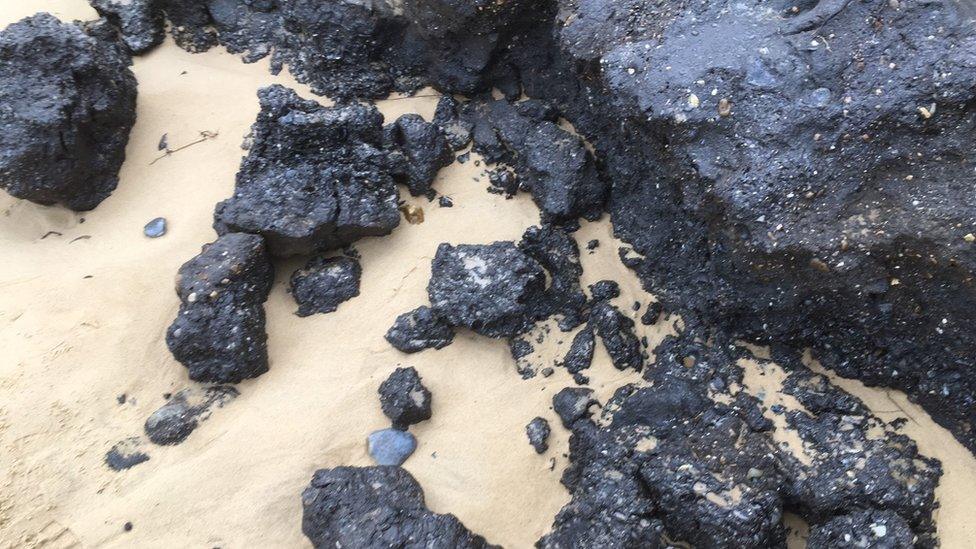
East Suffolk Council is looking into the possible effects of coastal erosion on the oil deposits
Environmental health officers and the coastal management team have been in discussions, with the coastal erosion between Corton and Gunton under review.
The council said it was addressing concerns which had been raised, adding "we do not believe that the consistency, composition and quantities of the oil residues involved have posed a threat to the environment or to marine life to date".
The authority added: "We are aware that continuing erosion may exacerbate the situation, particularly in light of recent high tides which have accelerated the rate of exposure, revealing larger outcrops of oil in the last few weeks.
"We are also aware that the consistency of the material is changing, with more sticky oil residues present than previously."
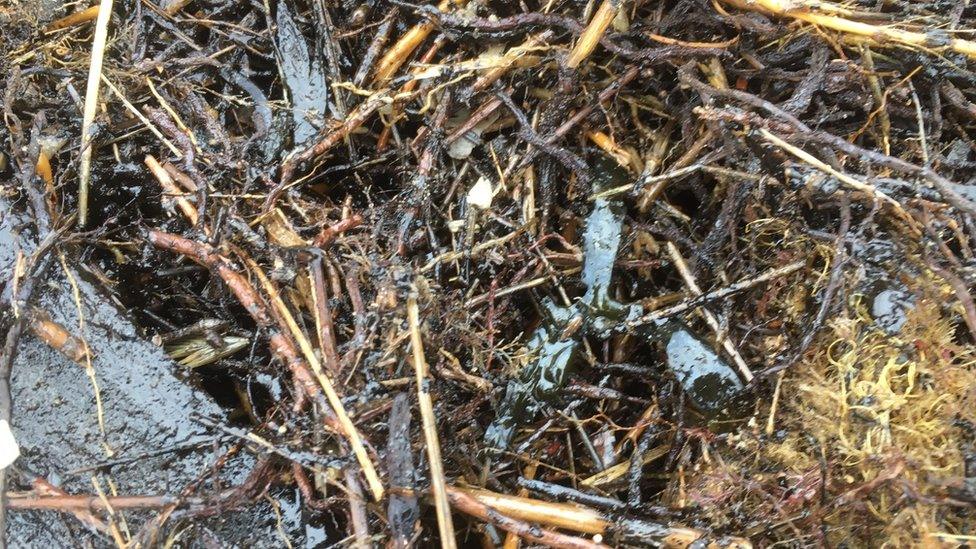
Members of the public have been warned not to try and remove oil deposits themselves
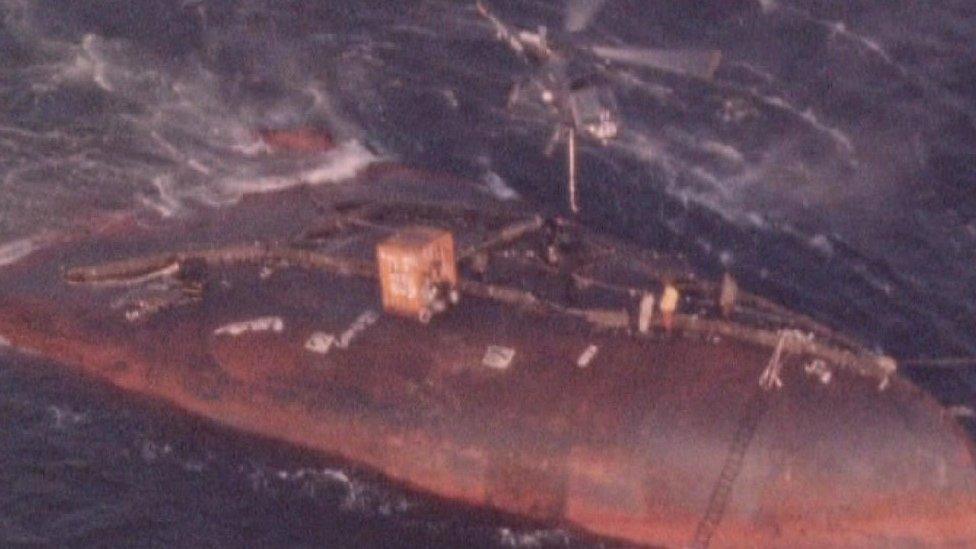
Thousands of tonnes of oil leaked from the Eleni V
The council said it would be possible to "remove some of the loose, drier material without causing damage".
That work will be carried out by the council's waste management contractor, East Suffolk Norse, and a specialist disposal company.
The authority also warned members of the public not to remove deposits "as this may release pollutants into the local environment and therefore requires removal by specialist contractors".
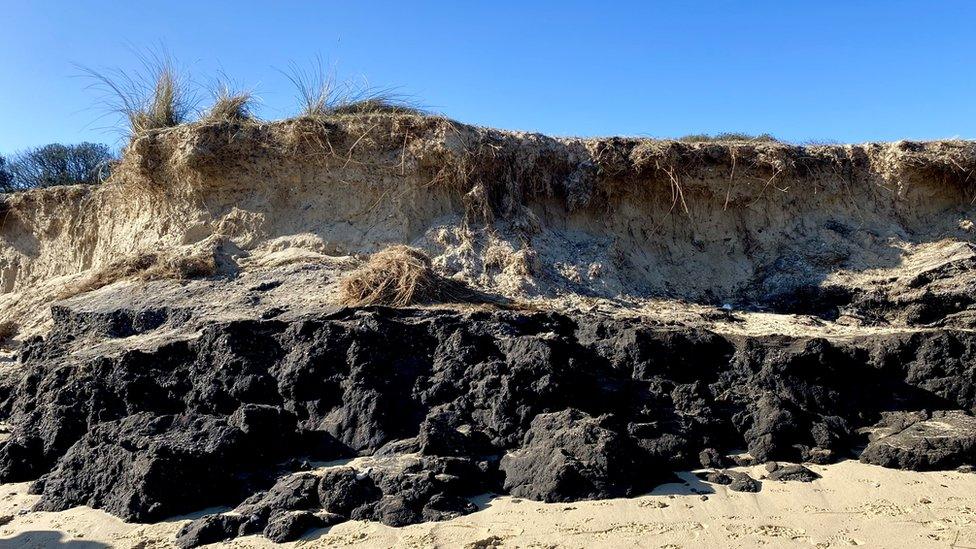

Find BBC News: East of England on Facebook, external, Instagram, external and Twitter, external. If you have a story suggestion email eastofenglandnews@bbc.co.uk, external
Related topics
- Published3 January 2016
